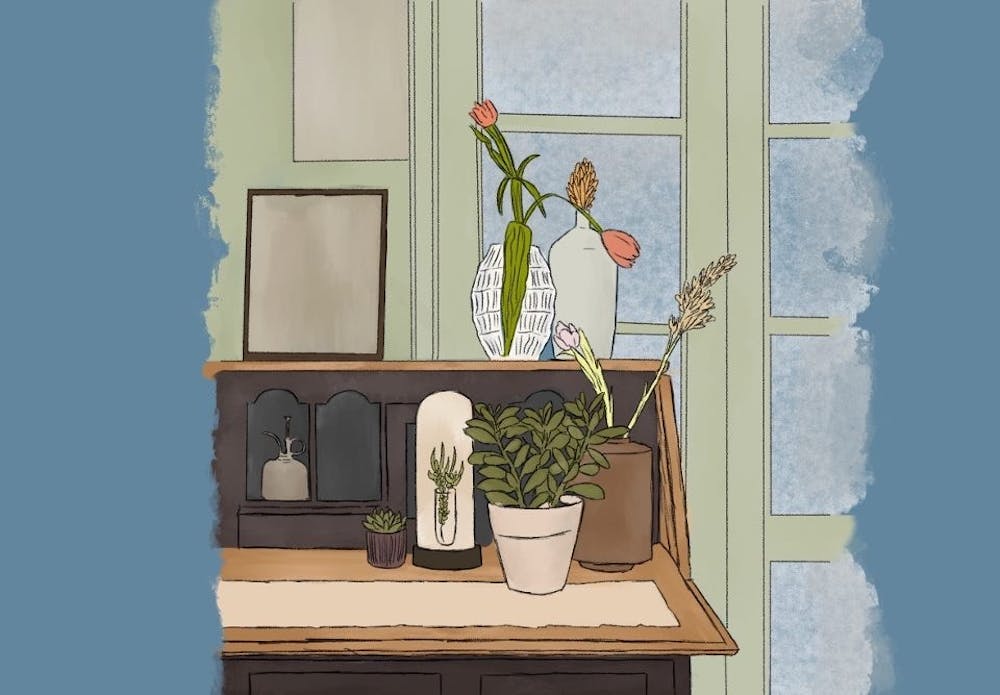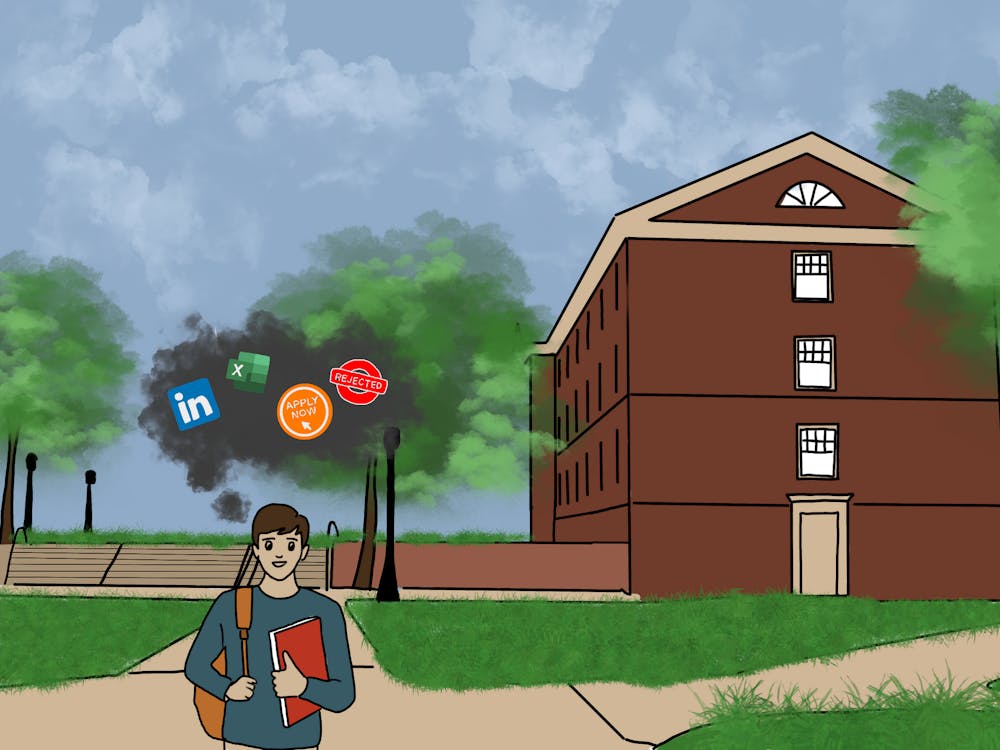Whether you’re living in a dorm, apartment, overflowing house or a shared bedroom, owning plants is an often overlooked necessity. These little green cellulose plumes are at the top of my list when it comes to decorating my space because, despite their spindly or miniature forms — succulents have taken over my life — they make up the putty and spackle that feverishly seal the cracks in my crumbling stability as a University undergraduate student. Keeping plants is an essential addition to any University student’s life.
Consider basic science. Plants take in carbon dioxide and release oxygen. We all know where we’d be without them. So why not have a tiny, personal oxygen producer and air purifier? Sure, we have air filters and vents these days, but you don’t know where your oxygen is coming from nor how many man-made obstacles it’s had to endure. Your air could be coming from your down-the-hall-roommate's plants, and you despise her and the air she breathes. But your own plant creates this air bubble for your unique experience. Better yet, imagine the cellular bond you’d share with your plants! After four years of college, you practically have a chemical mini-me because you’ve been tossing molecules back and forth with them in an endless closed cycle. Having people over will mess up this connection, so it’s best to shelter your foliage from outsiders. Under your control, a house plant is a reliable source — unless you overwater it, causing it to shrivel and die. Or worse, you leave it on break and come back to yellowed, crusty sticks fashioned from once hydrated leaves, curling in on themselves as a last defense. A sad end for a hardworking plant.
Of course, one could argue that the plants outside produce the vast amount of oxygen needed to fuel an army of students anyway — particularly around exams when every last bit of air is used to answer long math proofs and devise arguments from several half-read, half skimmed novels. However, that idea just simply isn’t as romantic. You’re not raising the plants outside and forming a symbiotic relationship — unless you’ve taken up gardening.
As an enhancement of their practical behavior, I like to believe plants slurp more than just carbon dioxide from the air. All those negative thought bubbles fizzling up — you can’t figure out why your code won’t run or whether the poem you're reading could plausibly be in a different language despite the fact that you’re an English major — get absorbed into your plant’s leaves. Then, with the addition of some sunshine, water and a decent amount of spite — especially if your other, older plants are looking a little worse for wear — your plant spits out fresh oxygen! It’s like a herder and cleanser for cranky sheep, funneling them through a spa experience so they come out fresh and spunky again.
The ultimate reward for keeping plants is the satisfaction of caring for a living thing. Often in the throes of the semester it can be hard to keep track of our well-being and healthy habits, but having a plant requires low and consistent maintenance. You have to remember to be their little rainmaker every week or so, and in the process it might even remind you to drink some more water too. With some tender love and care, your plant will grow and flourish, all from your efforts! You helped that happen! And a new leaf or tiny flower for your diligence is much more exciting than grades. So, if you haven’t already, go pick up a leafy, pointy or chunky friend from a local nursery. Or, if you’re feeling up for the long haul and don’t want to weed through the types best suited to your living condition, I guess you could try planting an acorn.







